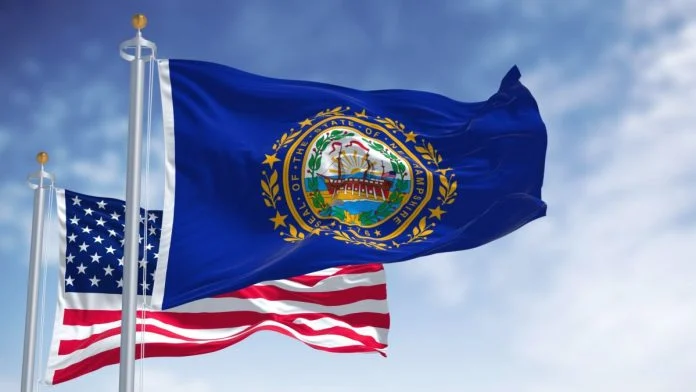New Hampshire lawmakers heard from the state’s lottery director and gambling health advocates from neighboring Massachusetts on Tuesday about a proposal to cut 18-to-20-year-olds out of sports betting.
At a House Ways and Means Committee hearing on Jan. 21, Rep. Sally Fellows presented HB 83, which would raise the state’s minimum legal sports wagering age from 18 to 21.
Per New Hampshire Lottery financials, 18-to-20-year-olds wagered more than $14 million in FY 24, providing around $639,000 in revenue to the state.
New Hampshire is one of a small handful of regulated sports betting states that allows people as young as 18 to bet.
Argument hinged largely on young men’s brains
Fellows stressed that research shows that 18-to-20-year-old males are more likely than mature adults to engage in risky behaviors because their cognitive ability to evaluate the consequences of their actions has not completely developed.
She also pointed to the dangers of cellphone addiction among younger demographics.
“We know most sports betting takes place on cell phones, where bets can be made on events happening around the world. This easy, 24/7 access, paired with fast-paced betting opportunities, has an addiction rate higher than any other form of gambling.”
Massachusetts Council on Gaming and Health (MCGH) CEO Marlene Warner echoed Fellows’ argument, stressing that it is “100% a fact” that an immature prefrontal cortex means young men aren’t able to mitigate the risks involved with sports betting. She also warned they are more susceptible to gambling advertisements and promotions.
“No research in the world that has been done on youth and younger adults that would tell you that a less mature brain is more appropriate for gambling than a more mature brain,” Warner stated. “These are babes making uninformed decisions.”
Offsetting lost betting revenue could be tricky
In New Hampshire, DraftKings is the lone operator as part of a multi-year agreement with the New Hampshire Lottery signed in 2019.
After Rep. Thomas Oppel noted that the committee’s primary concern around sports betting is revenue, Rep. Mary Murphy asked New Hampshire Lottery Director Charlie McIntyre whether it would be possible to offset the projected loss of $640,000 to the state from raising the age limit by increasing how much DraftKings pays.
McIntyre noted that while “anything’s possible,” the fact that DraftKings has built an office in Nashua and contributes to the state economy by employing New Hampshire residents could make that a difficult ask.
“We currently are the number two or three jurisdiction out of the 40 in terms of profitability to the state,” he asserted. “We have a negotiated contract that is the envy of most states… It’s a very exceptionally lucrative contract. So, it’s possible, but I would imagine probably not.”
McIntyre was also asked about under-21 Massachusetts residents crossing into New Hampshire. Warner had earlier said she finds it “distressing” that it remains a “rite of passage” for young men from Massachusetts to visit New Hampshire for the express purpose of gambling.
“No reason” to put younger people at risk
Ultimately, Warner and Fellows argued that raising the minimum age to 21 would give high school students and recent graduates three more years to mature.
“Then, they will be better able to budget their bets, avoid financial disaster and avoid emotional distress,” said Fellows. “The purpose of this bill is to reduce the number of gamblers who will become addicted.”
Warner said that while much in the betting industry is subjective, she is convinced that the topic of whether or not to allow under-21s to bet on sports is a rare “clear, black-and-white issue.”
“One of the largest risk factors for someone ending up with a gambling problem is the early age of onset of gambling,” she said. “We know that young people don’t have the mental, emotional or financial capacity to bounce back from dramatic sports wagering losses…
“And gambling offerings in states do financially very well, if not better, with only 21-year-olds betting on them. There’s truly no reason to put young people here in New Hampshire at risk.”
No witnesses in opposition to the bill were heard in Tuesday’s session, and no vote was taken. Committee discussion is expected to continue.



